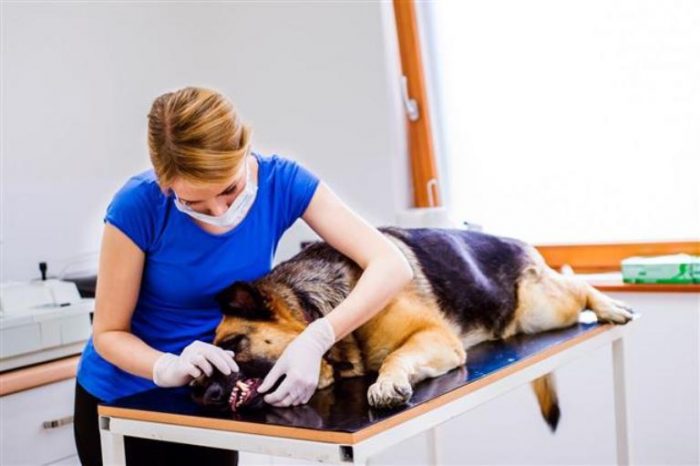Once you introduce that cute ball of fur into your family, the young canine will depend on you for all its needs, both nutritional and medical. Now, it is your responsibility as a parent to take care of your pet dog and provide its daily needs and care. It can be a bit daunting, but your buddy will need attention, a puppy diet, socialization, and safe toys for mental stimulation. Other needs include a comfortable shelter and, of course, veterinary care, which includes dog vaccination both for puppies and adult dogs. Get enlightened on vital information about dog vaccinations, the right schedule for the shots, the possible side effects, and much more.
Table of Contents
What Are These Dog Vaccines, Are They Any Good?
Vaccinations are shots given to dogs to fortify their immune system against the invasion of any disease-causing germs or organisms. We must note that these vaccines are produced with antigens that imitate disease-causing organisms when it gets to the immune system. However, the antigens are not meant to cause illness; the aim is to stimulate the pup’s immune system mildly and have it recognize the presence of the antigens. If the dog eventually comes in contact with the real disease, the already fortified immune system kicks in, recognizes the causative organism, and fights it off, or reduces the effect to the barest minimum.
Dog Vaccination can come in two broad categories; we have the core and non-core pet vaccines.
Core Vaccines
These are the types of vaccines considered important to all dogs based on disease severity and the high risk of transmission to both humans, as well as other canine breeds.
According to The American Animal Hospital Association’s Canine Task Force, the under-listed shots are classified as core vaccines.
- Canine Parvovirus
- Canine Distemper
- Hepatitis
- Rabies
Non-core – Vaccines
These vaccines are listed as non-core; however, they are still vital to dogs that may come in contact with any of the under-listed diseases. This is especially true for the outdoor-only pets, they include:
• Bordetella
• Canine Influenza (dog flu)
• Leptospirosis
• Lyme vaccine
Vaccinations For Puppies
Vaccinations for puppies are the ones administered during the dog’s first year. For those who acquired their pups from shelters and reputable breeders, they should check with the vet first before going for any dog vaccination. The veterinarian will subject the dog to a physical exam and also have a look at its vaccination and medical history.
This record will show the extent to which the puppy has been vaccinated, and if he is confident that it is properly administered, he will develop a schedule for the follow-up vaccinations. The whole procedure will be based on the puppy’s particular needs. Note that the final shot for the puppy vaccines should be given at 16 weeks of age.
Vaccinations For Senior Dogs

Dog vaccination is not for only puppies, adult dogs still get vaccinated yearly, though this has sparked a lot of debate. According to some veterinarians, vaccinating a dog several times over may lead to health risks. However, we still have some factions that are for the yearly dog vaccinations; they believe that it is effective in the prevention of some dangerous diseases such as distemper.
Some dog parents will prefer to go for titer tests before administering annual vaccinations on their pets. The essence of the titer tests is to measure the dog’s immunity level, and at the end of the day, the vet will be in a better position to determine which dog vaccinations are necessary and which are not. Note that there is one major exception to this, and that is rabies; rabies vaccination is so important that you don’t need to conduct any test before giving it to your pooch. In fact, the United States has made it a law that all dogs must get a rabies shot.
Dog Vaccinations: A Concise Schedule To Follow
We must recognize that no universal puppy vaccination schedule exits. Several factors need to be considered; the vet will try to determine your pooch’s individual risk factor, another thing to consider is your location, as there are dogs that won’t need to take every shot because of the environment they live in. However, this is left for pet parents and their respective veterinarians to decipher.
Below is a generally established guideline for puppy vaccination schedules in their initial year of life.
| Age | Vaccinations Recommended | Optional Vaccinations |
| 6 to 8 weeks | Distemper, parainfluenza | Bordetella |
| 10 to 12 weeks | DHPP (vaccines for distemper, adenovirus [hepatitis], parvovirus, parainfluenza.) | Leptospirosis, Coronavirus, Lyme disease, Bordetella |
| 12 to 24 weeks | Rabies | None |
| 14 to 16 weeks | DHPP | Coronavirus, Leptospirosis, and Lyme disease |
| 12 to 16 months | Rabies, DHPP | Coronavirus, Bordetella, Leptospirosis, and Lyme disease |
| Every 1 to 2 years | DHPP | Coronavirus, Bordetella, Leptospirosis, and Lyme disease |
| Every 1 to 3 years | Rabies (as required by law) | None |
How Much Do Dog Vaccinations Cost?
The cost of dog vaccination is dependent on many factors. For one, your location is a determining factor – rural vets who practice in minor towns will likely charge less than the ones in expensive and overpopulated urban cities. Even though the difference in price may be substantial, the vaccines classified as core are crucial, and thus, must be given to every dog at the puppy stage. A good example of such shots is the one for rabies.
However, there is a helpful guide that pet parents can leverage on for an estimated cost of dog vaccinations for the first year. Averagely, it is estimated at around $75 to $100 and includes all the core vaccines, which should be given in three series between 6 to 12, and 16 weeks of age. With that said, we must understand that the cost of initial puppy vaccination for the first year is more expensive than the one you give during adulthood.
Only the cost for the core vaccinations can range from $15 to 20, and we are yet to factor in the non-core ones; cost for rabies vaccination may be inclusive. There are still some specialized shots such as multivalent leptospirosis, rattlesnake, and Lyme disease that are really high cost from $35 to $45.
To cut costs on vaccination, it may be a good idea for prospective parents to adopt from the shelter where these shots are cheaper. Everything can cost approximately $20, and any dog you acquire from them is likely to have taken all the necessary shots for its age, and they will just factor it into the cost of adoption.
Read Also: High-Calorie Dog Food: How To Make My Dog Gain Weight
The Side Effects Of Dog Vaccinations
Dog vaccinations have many benefits, which far outweigh the risks; however, we must acknowledge that the side effects do exist though they may be rare. Recommendations for pet parents is to take their dogs for vaccination at convenient periods when they will be available to personally monitor the puppy and take proper action in the case of any side effects. The symptoms to look out for when a dog is reacting to vaccination include:
- Fever
- lethargy
- low or zero appetite
- Hives or Facial or paw swelling
- Vomiting
- Diarrhea
- Swelling and pains around the injected spot
- Collapse, breathing difficulty, and seizures (anaphylactic shock)
In the same way as human vaccines, we can ignore these symptoms if they are mild. This is the case with the majority of the side effects; they are mild, as well as short-lived. However, dog vaccinations that resulted in severe reactions like lethargy, vomiting, or facial swelling will call for the immediate attention of the vet.
